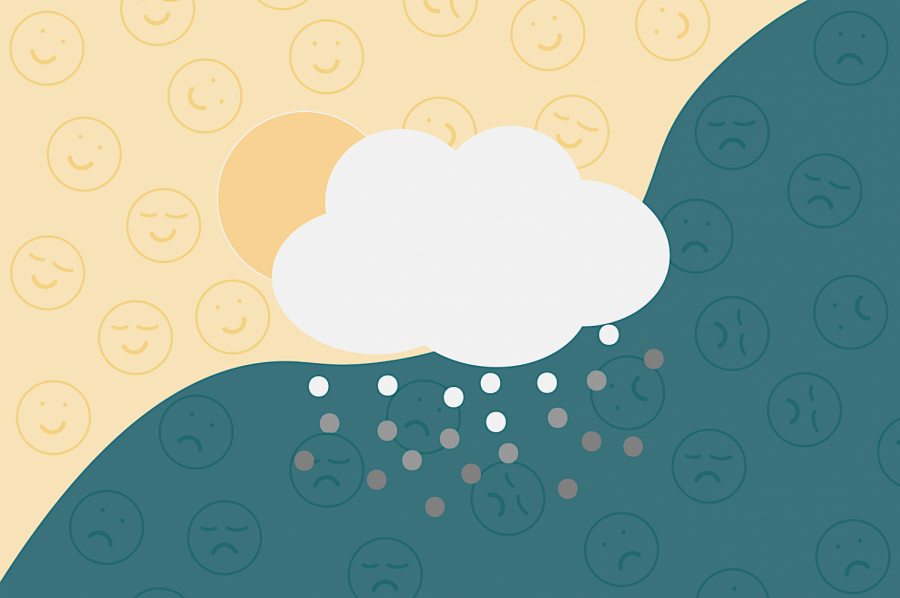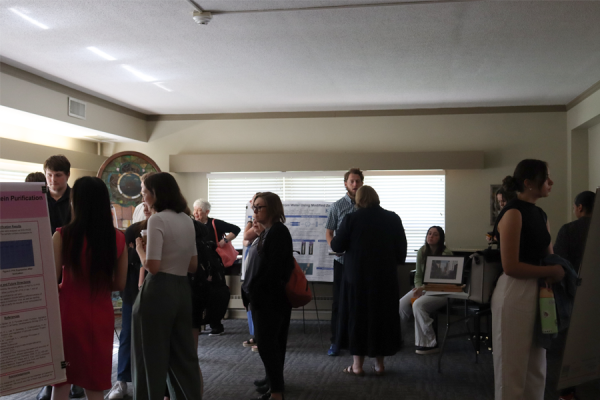How weather impacts our mood: a word about seasonal depression
Seasonal depression is real. Many of us, including myself, are no stranger to the effects of the changing seasons. Change of season can have a major impact on our lives. These feelings can look and feel different for everyone. For me, seasonal depression is marked with excessive sleeping, lack of motivation and strange eating habits.
According to Mental Health America, about five percent of the United States population experiences seasonal depression. Additionally, approximately four out of five people who experience seasonal depression are women. It is also assumed that the further a person lives from the equator, the more at risk they could be for experiencing seasonal depression (Mental Health America).
According to the Mayo Clinic, there is a real reason for mood changes around the change from summer to winter. These mood changes are linked to a biochemical imbalance in the brain caused by less sunlight (“Seasonal affective disorder”).
Seasonal depression is no joke. And with this year’s already challenging atmosphere, it could be worse than normal. COVID-19 has created a lot of change in everyone’s lives. We are socializing less and leaving our homes less. One of the main ways to alleviate seasonal depression is to get more natural sunlight, according to HelpGuide.org.
So how can we get more natural light when we’re encouraged to stay home? Taking walks outside, opening up blinds and curtains in your home, and using daylight simulation bulbs are some of the tips by HelpGuide.org.
According to USAToday, these seasonal depressive feelings could be much worse amid the COVID-19 pandemic. Dr. Lata McGinn, professor of psychology at Yeshiva University, explains that with less socialization, less pleasurable activities and the added job losses and death of family members, it’s only fair to assume that people could be at a higher risk for seasonal depression this winter.
Personally, I have managed seasonal depression. It’s not always easy, but it is definitely possible. I grew up in Phoenix, Arizona. I can say that growing up in Arizona with plenty of sunlight year-round, I never really noticed seasonal depression affecting me as much as it does in Kansas.
After living in Kansas for four years now, I can easily identify the symptoms I experience most often. For me, it means I sleep a lot more, I have little motivation to go to work or school and I eat far more than I normally would.
Sometimes, the lack of motivation and the heightened desire for sleep can be overwhelming. Honestly, there are times that I have to force myself to get out of bed so that I don’t sleep the whole day away. Even though seasonal depression can be overwhelming, I often remind myself that (for the most part) it’s only temporary.
If you’re struggling with seasonal depression or other matters this winter, I encourage you to check out some of the resources I mentioned here. I also encourage you to check out some of the resources available through the Counseling Center at Baker. I have found these resources especially helpful.

Skylar Grinnell is a senior Sports Administration major with a double minor in Business and History. Originally from Phoenix, Arizona, she now lives in...
















